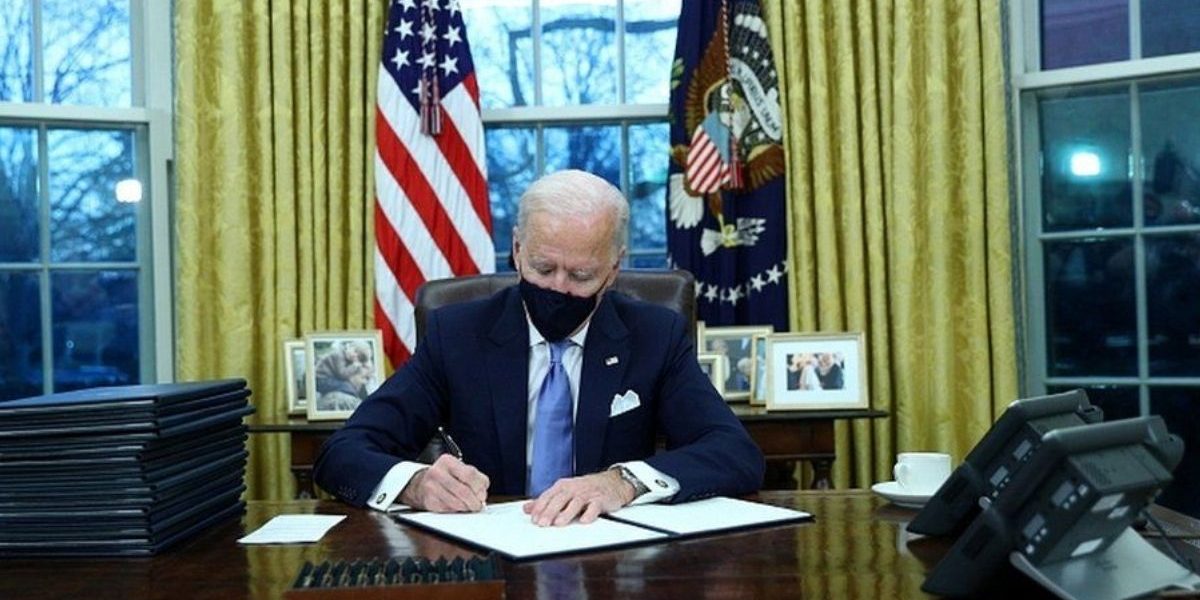The Senate takes up $1.9 trillion COVID-19 relief package as debate of raising minimum wage continues

President Joe Biden presents the coronavirus aid package worth $1.9 trillion this week before the Senate followed by a largely party-line House vote.
This comes after the debate over minimum wage continues. The Democratic party wants the bill to be brought into effect by 14th March by the president. It is on this day that the current enhanced unemployment benefits will expire.
The bill comprises funds for vaccine distribution, rental assistance, food aid, $1400 direct payments to the qualifying Americans, money paid for state and local government, expanded child tax credit, and more help for small enterprises.
Raising the minimum wage continues to be a matter of debate. The Senate on Thursday decided that the federal minimum wage of $15 per hour cannot be included in the senate. This is because of the limits of the budget. Therefore it’s expected to be removed from the bill as the Senate will debate the bill this week. Senate Democratic leaders and the White House indicated they would respect the ruling but continue to look to get the increase through another legislative route.
Republican Sens. Mitt Romney of Utah and Tom Cotton of Arkansas are pushing a proposal to increase the minimum wage to $10 per hour. But they have also included a requirement that the businesses must use an E-Verify program that reviews workers. This will make sure that they are not left undocumented.
It is not expected to get any attraction but is a sign that some elements of the GOP view the need to address the issue of the wide wage gap in the country.
Few centrists from the Democratic and Republican parties voiced their concerns about the size of the package. They have suggested some items like direct payments must be targeted. There are no signs yet that these issues can be a deal-breaker for the Democratic party in terms of adding another yes vote.
In an evenly divided chamber, any one senator can exercise influence and press for a pet issue or program that has an impact in their state. After this, the package moves to the floor, and senators from both parties press for amendments, generally, regarding how the tax credits are formed, that could change those items that many House Democrats insist should stay as is. The progressives are already complaining that the moderates should not be given an outsized role in shaping the policies. this is what Joe Biden campaigned and won on in the 2020 election.
The relief package is likely to pass Congress entirely with Democratic votes. Democrats have realized that Republicans are making a risky bet putting up a wall of opposition to the relief bill. Several polls have shown that 7 in 10 Americans are in favor of the $1.9 trillion plan, and in some cases, a majority of Republican voters are themselves backing the legislation.
Delaware Democratic Sen. Chris Coons said on CNN, “We’re moving ahead with the bill that probably will get no Republican votes in the Senate, but will have broad Republican support in the country”
Ohio GOP Sen. Rob Portman, one of 10 Republicans who met with Biden about crafting a relief bill, acknowledged that direct payments are popular but argued in an interview on Sunday on ABC’s This Week, that more than half of the $1.9 trillion proposals won’t be spent in 2021, citing a study by the nonpartisan Congressional Budget Office. “So how could it be about COVID relief? No one expects a year from now that we’ll be in the COVID crisis that we’re in now, so, it just doesn’t make any sense.,” Portman said.
The clash over getting rid of the filibuster is likely to get heightened, fueled by frustrated progressives
Getting 10 Republicans to consider backing a relief bill proved too high a hurdle, so the notion that Democrats could attract support from enough to reach the 60-vote threshold on things like a multitrillion-dollar infrastructure package, climate change legislation, gun control bills, or other major priorities would likely be much tougher, if not impossible.
Sens. Manchin and Sinema remain opposed to ending the filibuster, and there could be other Democrats who would vote against a rules change, so leaders don’t have the votes now to make the move, and Biden is largely staying out of the debate.



